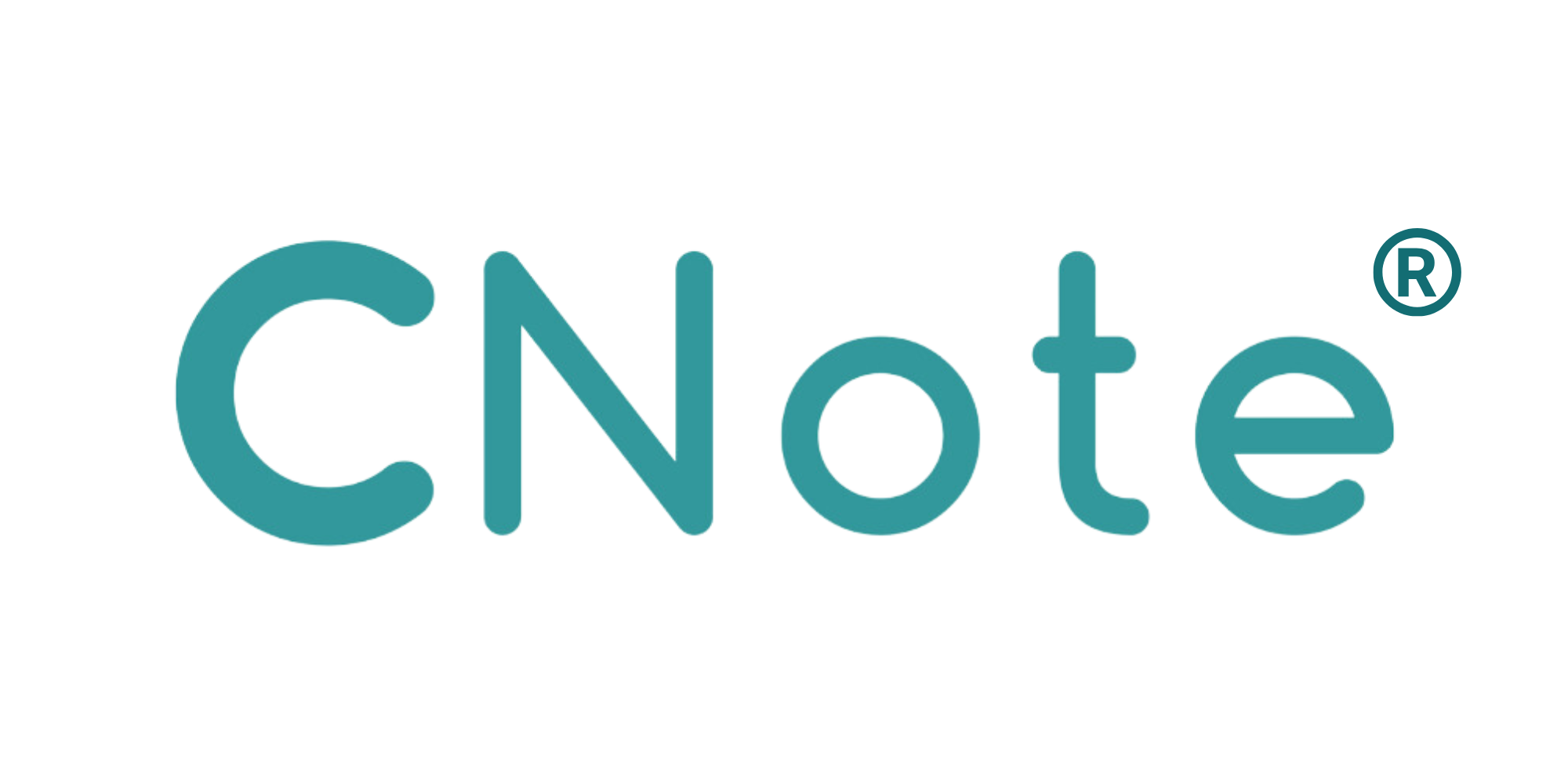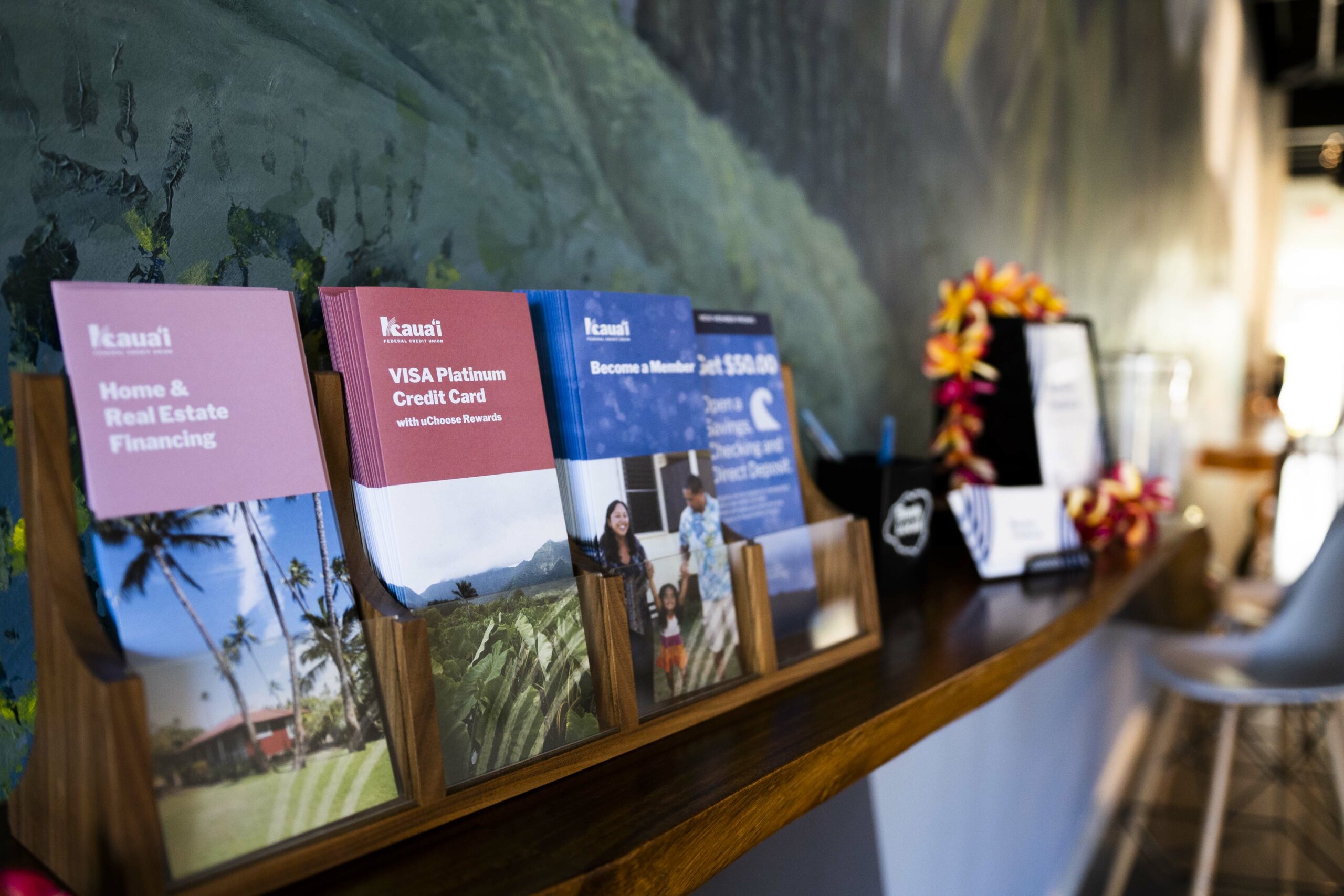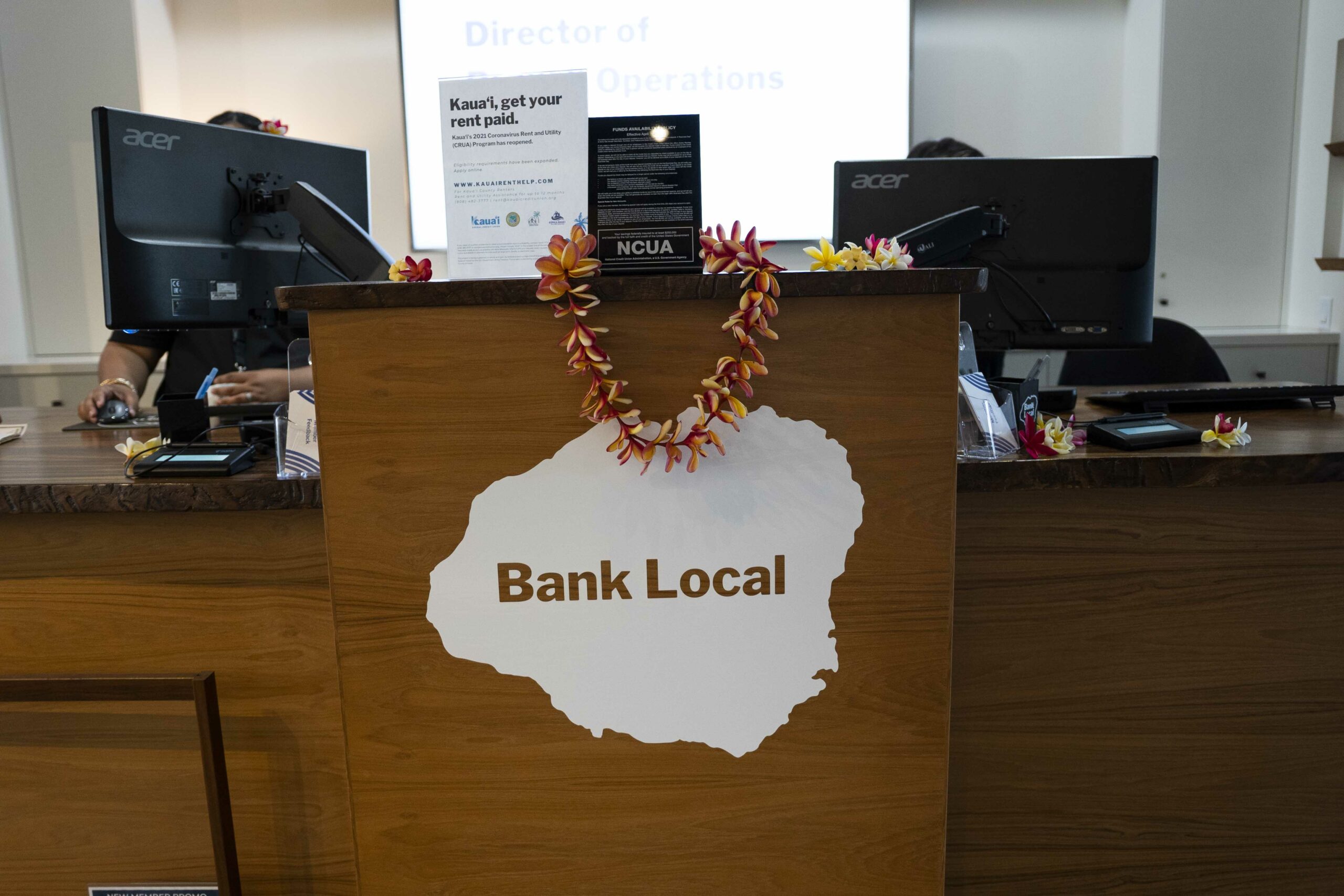The COVID-19 pandemic turned Chef John Paul Gordon’s life upside down. One day, John Paul was an executive chef catering to Kaua’i’s tourists, the next day, he was unemployed. After more than 20 years of being a chef, John Paul felt like COVID-19 stole his identity away from him overnight. Despite wanting to get back to work, John Paul says that there was no work to go back to—at least nothing that could provide him with the six-figure income he needed to survive on an island where a loaf of bread costs $7, and where rents are always on the rise.

During the COVID-19, Kaua’i’s median home price ballooned from $800,000 to $1.8 million. Although that was fueled in part by COVID-19 refugees from the mainland, it’s part of a larger issue, in which wealthy investors have been gobbling up Kaua’i’s modest housing stock. In 2020, 70% of the homes sold on Kaua’i went to owner-investors purchasing property as non-primary residences. In 2021, that number grew to more than 80%. Therefore, with homeownership out of reach for many locals like John Paul, people have to work two or three jobs, (where they earn some of the lowest wages in the country) to try to make ends meet in a tumultuous rental market that seems primed to evict them. “The rent situation out here is insane, especially with inflation,” John Paul said. “I’ve dealt with this problem here my whole life. I can’t tell you how many times I’ve had to move because the house that I was renting got bought.”
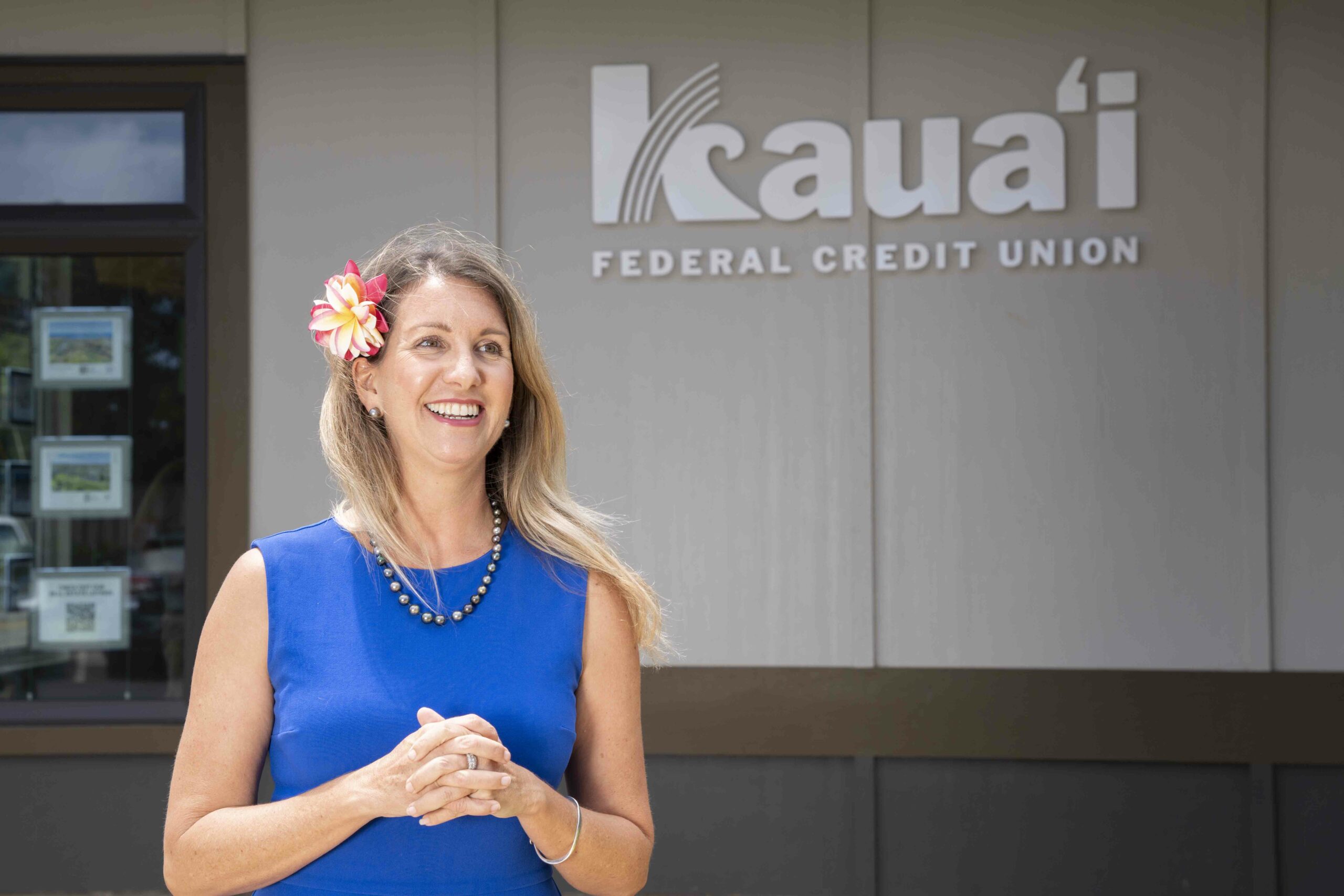
Dana Hazelton is similarly familiar with Kaua’i’s rental market. Dana is a Community Development Officer at Kaua’i Federal Credit Union (Kaua’i FCU), the only Community Development Financial Institution-certified (CDFI) credit union on the island. Dana oversees the credit union’s Rent Relief and Housing Stability program, which aims to create housing security for all Kauaʻi residents, regardless of whether they’re members of the credit union or not. As someone who was born and raised on Kaua’i, Dana knows firsthand just how difficult it can be to make ends meet on the island. Dana is a registered nurse, and she spent a decade “working in the trenches” of her community, providing end-of-life care and, later, in-house pediatric care to people experiencing absolute poverty.
Over the course of a few years, Dana pivoted away from nursing and into education. However, despite finding joy in her work, she knew that if she was going to help people achieve better health and educational outcomes, then she was going to need to help them escape persistent cycles of poverty. Ultimately, that’s how Dana learned about credit unions, and that’s how she got to where she is today at Kaua’i FCU, where, as a CDFI, she and her team have the “flexibility … to radically empower and transform communities around Kaua’i,” and where Dana gets to use capital instead of medicine to heal people.
A Business Model Built Around Community Impact
That was especially true during the COVID-19 pandemic, when Hawai’i was flooded with federal dollars to drive economic impact at the county level. One such initiative was the rent relief program, which saw the state receive $100 million to distribute to nonprofits. The issue, however, was that Hawai’i couldn’t find enough nonprofits to help distribute the funds. The state went to the Hawai’i Credit Union League to ask every credit union in the state to help deploy the rent relief program; however, Kaua’i FCU was the only credit union on Kaua’i to step up and say yes. “We’re not a normal credit union,” Dana said. “Community impact is our business model, so if we see a need, we figure it out.”
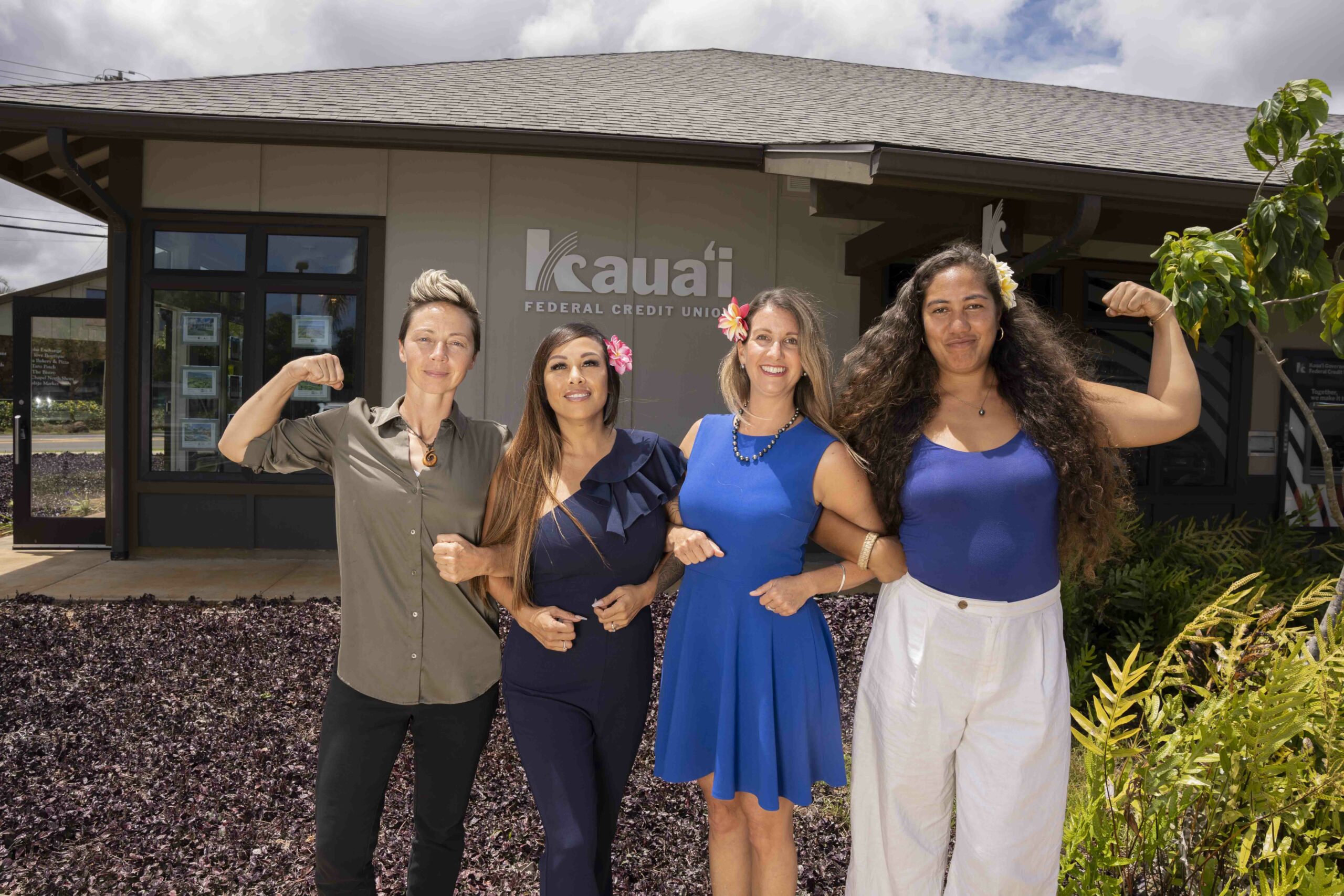
Because of the administrative fee associated with deploying these funds, as well as a get-back-to-work grant that allowed Kaua’i FCU to hire new employees, Dana knew that the better she and her team did at running the rent relief program, the more income they could generate to support Kaua’i FCU’s members, expand product offerings, and distribute funds to the community. The win-win-win business model proved to be enough motivation for Dana and her team to succeed, as Kaua’i FCU became the number one provider under the Aloha United Way network in the State of Hawaii. Within two and a half months, the credit union deployed approximately $6 million.
Unsurprisingly, when the second round of rent relief stabilization funds were announced, the County of Kaua’i again asked Kaua’i FCU to be the provider. “We won this $22 million contract in partnership with the County of Kaua’i, and we were told you probably can’t spend it down and do this,” Dana said. “I was like ‘you don’t know how badly people need this in our community.’ If there’s anything I know working as a nurse for 10 years, I know how to reach people, remove barriers, and meet people where they are.”
To get the word out, Dana and her team connected with trusted community leaders, they printed announcements in local newspapers, and they flooded the airwaves. However, most of Kaua’i FCU’s outreach has been word of mouth, with Dana and her team visiting grocery stores, gas stations, beaches, and small businesses. They’ve even forged a partnership with the public library system, and the CDFI has been intentional about doing community outreach in the Pacific Islander and Filipino communities. Kaua’i FCU strategically set the rental relief cap to $4,500 per month to take into account the rent increases it predicted would follow the island’s eviction moratorium. Additionally, the CDFI made the funds available to as large a swath of the population as possible, including to multifamily and multigenerational households, roommates, non-English speakers, and individuals who didn’t have formal lease agreements.
By February 2022, Kaua’i FCU’s Rent Relief and Housing Stability program successfully spent down its contract funds. It took Dana and her team less than a year. The milestone meant that Kaua’i FCU was able to unlock another multi-million dollar tranche of remaining rental relief funding, which the CDFI has until 2025 to use. “When your teachers and nurses and doctors and restaurant workers don’t have anywhere to live, that’s an issue,” she said. “We’re in a major housing crisis, and so any capital we get literally changes lives. It stabilizes not only our economy, but our culture, and it prevents homelessness.”
‘The Freedom To Fail’
In the years to come, Dana hopes that Kaua’i FCU can help Kaua’i address its dearth of primary residences, whether that’s through building affordable housing, creating a secondary housing market, starting a first-time homeowners program, and/or developing deed restriction programs that buy back homes in order to keep them in the community to support the local workforce. Regardless of what housing solutions Kaua’i FCU and its partners push for, Dana knows that it’s going to take an unprecedented wave of capital to make it happen. She also knows that with the right partnerships, anything can happen. “I know it sounds impossible,” she said, “but if we could get a pool of $200 million, we could transform our community, build generational wealth, and everybody could win. That’s direct social impact.”

Although it’s too early to know how Kaua’i will tackle its housing shortage, for rent relief recipients like chef John Paul, they’re just happy to have made it through the last couple of years under one roof. With the money he was able to save through the rent relief program John Paul was able to take on close to $50,000 in debt to open his own restaurant, Table at Poipu. Within three months of opening, John Paul was debt free, and in his first year, John Paul projects Table at Poipu to make $1.6 million in revenue. Better yet, he’s been able to employ and provide full benefits for nearly 30 employees. In October, John Paul purchased the restaurant where he used to work: The Bistro at Kilauea. “I now have a secure job,” John Paul said. “I have a secure place to live, and if it wasn’t for this program, me and my 30 employees wouldn’t be doing as well as we’re doing now. I can only imagine the impact that it’s had on the rest of the island.”
John Paul is back to paying $5,000 a month for his two-bedroom, one-bath rental duplex, but he’s thankful that he had 15 months of rent relief. It helped him both to get through the trials and tribulations of the COVID-19 pandemic and to make his dreams of owning his own restaurant come true. “The rent relief program gave me the freedom to fail,” he said, “and I just went for it.

Learn More:
- Kaua’i Federal Credit Union helps the people of Kaua’i by keeping money on the island for a stronger financial future for our people. They offer their members the financial services and products that are right for them at preferable rates and at little or no cost, ensuring the wellness and wealth of future generations.
- CNote is a women-led investment platform that empowers individuals and institutions to invest locally to further economic equality, racial justice, gender equity, and address climate change.
